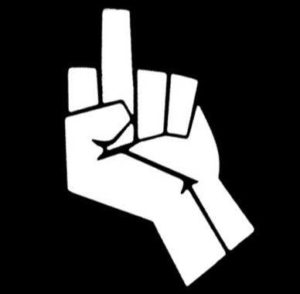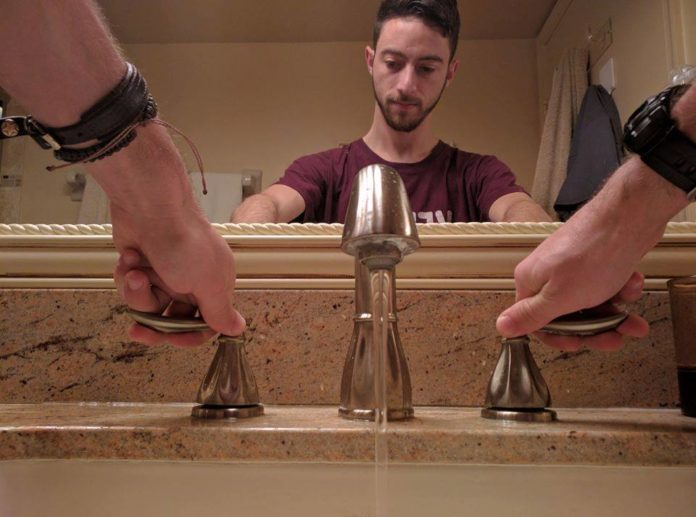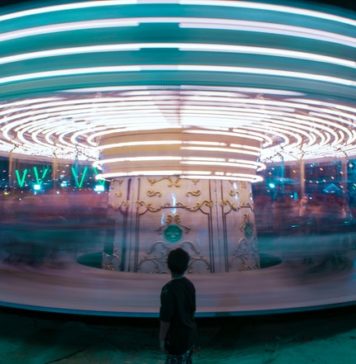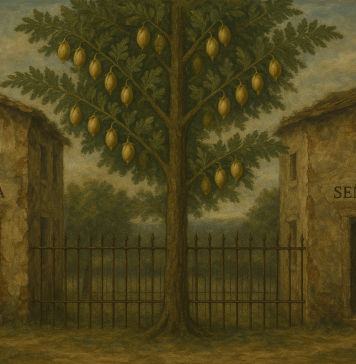I always transition quickly. Within a week, there was no indication that I was ever religious.
I would take tourist friends I met at hostels on tour of Meah She’arim, to try to look at that world through their eyes. Just a fascinating anthropological study, instead of a social institution that had fucked with my mind for my entire life. I wished I didn’t care so much. I wished all those stupid rules were just entertaining, like visiting a Mennonite village.
We ate cholent. I explained about all the posters on the wall. I showed the Ferster hat store and how there’s no mannequins in the windows. And I tried to forget.
Sometimes I’m hit with a wave of nostalgia. For the Kotel. For TefillinTefillin, technically called Phylacteries in English, are bl... More. For the feeling I got in the Beis Medrash after putting in my all and actually “getting” the daf. I wanted to so badly for it all to work, for my life to be as simple as theirs – one foot in front of the other, from cradle to grave. My classmates, people I went to kindergarten with, are in the same room I left them in 12 years ago. They have five or six kids.
Their lives are simple. I can’t go through the day without a midlife crisis.
I sometimes wish I still believed. I wish it still worked for me. I wish I could separate the good memories from the bad associations, the Chad Gadya from the anxiety about getting Chametz on my Matzah. But I can’t.
But I can’t compromise on my values, I can’t ignore the illogical framework that contains it all, the myriad of half-assed ideas that don’t fit into my world view.
In a way I’m as religious as I always was, as passionately opposed to Judaism as I was devoted to it. The core me hasn’t changed.
I attended a Vipassana retreat about six months after my transition. It was life changing. 10 days of total silence. No talking, no eye contact, no writing. More physical and emotional pain than I’d ever felt in my life.
Images came up during the meditation, unsolicited visions, fueled by rage. I’m using a bible to smash in the faces of my classmates. Never have I felt such an urge for violence. I hit them with the spine of my book as hard as I can, and their faces invert into a reverse imprint of a Tanach.
So much anger. I have nothing in common with these boors, these utter simpletons, who don’t speak English, who know nothing about the world; who drool, mouth agape, at the sight of a TV or ambulance; who crowd around my books like natives around an explorer.
Why did I have anything to do with them?
Why was I forced to share a room with them for eleven and a half years?
They knew nothing of science, of history, of geography. Their inner worlds seemed far less complex.
I despised every one of them for being in my life.
I had learned Buddhist philosophy for the first time, and it made much more practical, tangible sense. There was an immediate positive difference in my day. I finally had tools to cope with my anxiety, to deal with my suffering, to put things in a healing perspective. And thus began a pattern that expressed itself over and over again – retroactively mourning the absence of things in my past.
Where was Vipassana all my life as I struggled with anxiety and the meaninglessness of life?
How could God neglect to tell me, even once, about the life-changing power of focusing on your breath for an hour a day?
Could he not have swapped a single instance of “And God spake to Moses and thus he said” for one “And thou shalt focus inward and observe thy thoughts without attaching to them?”
Where would I be if I had spent all those hours meditating instead of praying? Studying law instead of Talmud?
What would I know if I had spent 14 hours a day learning about the subjects that actually interested me instead of endless pages of Gemarah?
I began a daily meditation practice that continues to this day, and, unlike Minyan, I’ve never had to force it. It was immediately, obviously, beneficial to my life. I cried harder than I’d ever cried, had more insights without trying, and for once didn’t need to try to artificially foster enthusiasm towards a ritual.
I am always pushing myself out of my comfort zone, sometimes too far. And so, when I found myself stirred to dance in the street and face my social anxieties about self-expression head-on, I acted upon it; despite the gripping terror of self-consciousness and standing out. I had moved back in with my parents, back to my youth, back to the street across from the school I had spent most my life in and hated.
I would play music in my wireless headphones and dance in Rothchild square between my parents’ house and the school. I danced with my eyes closed. It was the only way I could bring myself to avoid the reactions, admiring or incredulous, of passersby.
One time I opened my eyes to find myself surrounded by a group of Midreshet Harovah girls.
In my pubescent years, the Midreshet Harova seminary girls who roamed the streets of the neighborhood represented nirvana. The most idealized manifestation of female magnificence ever encapsulated in mortal form. Now they were here in the flesh, and wanted to know what I was listening to. I put my phone on speakerphone and we danced together. I tangoed with a midreshet harova girl. It was magical.
Closure.
The middle finger became a key part of my personality. It was a visual, visceral message for the world to fuck off, to get out of my head, to finally keep their distance. I no longer wanted to know what other people thought I should do, or how they felt I should be. “Fuck off, all of you.”
I incorporated it into my dance moves, to help overcome my self-consciousness. When I felt fear, judgement, oppressive thoughts from my past come up, I’d bust out the fingers in an outburst of self-assertion. Sometimes the voices would represent the collective culture of my upbringing. Other times I could trace the oppression and inhibition, the “you can’t do that, you can’t be that” voices, to a specific tangible figure.
It’s almost midnight. Eyes closed, I’m twirling through the square. Fighting the demons. The image of my old Rosh Yeshiva, Rav Yirmiyeh Zilberman comes into my head. “I heard you were making films on Friday afternoon after school,” he tells 14-year-old me. “Stop making them. Don’t be creative. Don’t express yourself. Squeeze tighter into the box. You are shit and deserve to feel like one. Be ashamed, be very ashamed.”
I keep dancing, dancing as hard as I can, dancing to save my life. I flail my middle fingers in all directions, keeping the demons at bay. “Get the fuck away from me,” I dance.

I stop mid-dance move, middle fingers still extended, and briefly open my eyes to make sure I wasn’t about to smash into anything.
Who should be standing in front of me, staring, having just walked out of one of the school classrooms hours after anyone was supposed to be there?
Rav Yirmiyeh.
I briefly meet his gaze. My stomach flooded with all the familiar feelings of guilt and shame.
Then I close my eyes and continue to dance.
Full chapter list (Available in eBook Form)
- Kindergarten
- Cheder
- Mishna
- Good and Evil
- Gemara
- Yeshiva Gedola
- Ramat Shlomo
- Beitar
- More of That
- The IDF
- Mitzpeh
- Darkness
- Independence
- Shitting on the Parade
- Light
- Detox
- Spreading Wings













